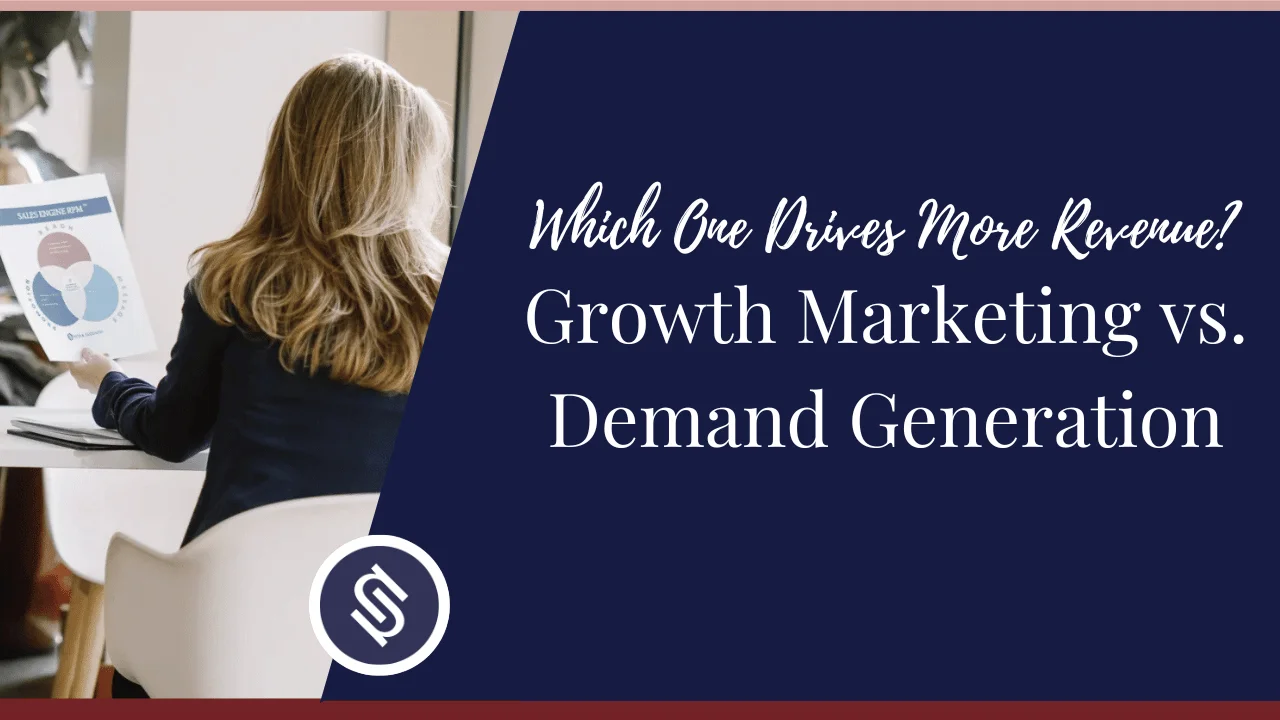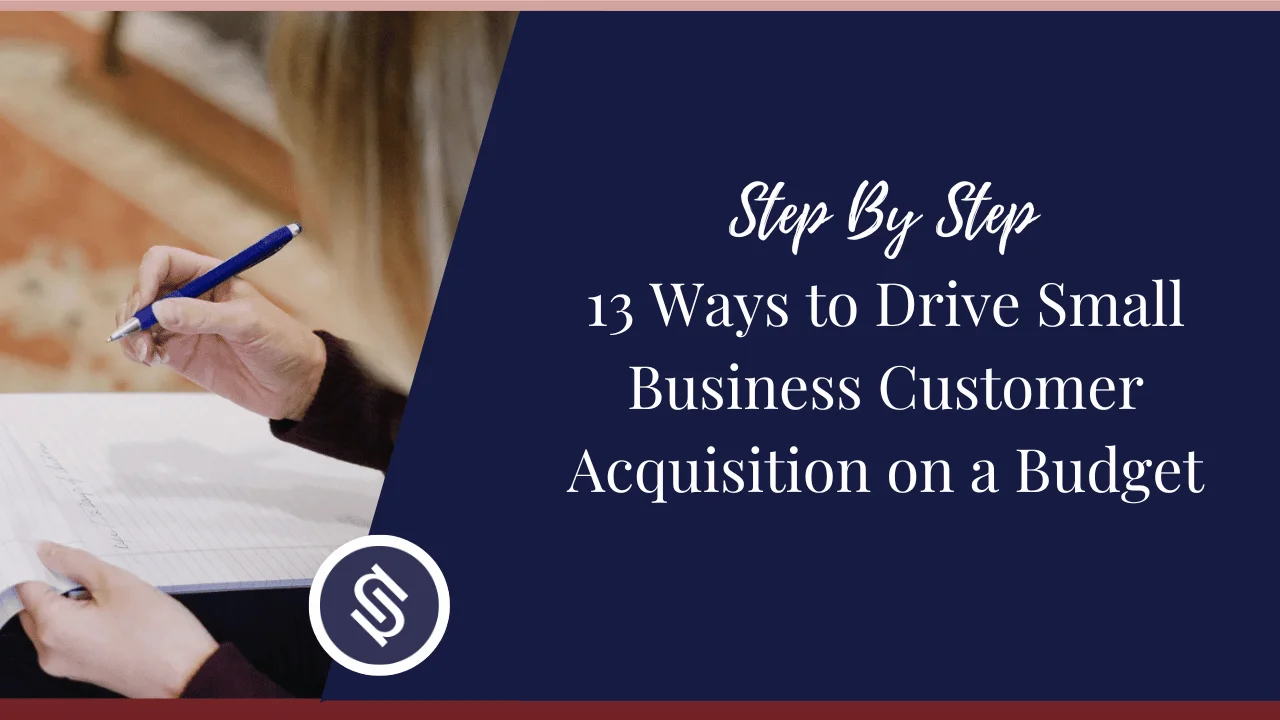Your brand’s messaging is the difference between losing and winning customers.
75% of consumers say customer experience influences their brand loyalty. Strategic messaging comes in to help you enhance your customers’ loyalty, attract and retain customers, and drive growth.
Today, we shall explore how a brand messaging strategist can help you stand out.
What is a Brand Messaging Strategist?
A messaging strategist guides all communication of your brand’s core values. They help you to create strategic, engaging, and relevant messaging that resonates with your audience.
With my ConversionRX program, I’ll review your marketing positioning, build your funnel, and create tailored messaging that helps you increase your leads and sales.
Interested in working with me — Nora Suduth — to create compelling and creative messaging? Book a discovery call today!

Benefits of Working With a Brand Messaging Strategist
The impact of a well-executed and strong messaging strategy will strengthen every facet of your business.
Building a Strong and Loyal Brand
Consistency in messaging is vital; a strategist will develop a comprehensive brand style guide that prevents a fluctuating brand message.
Consistency establishes credibility and gradually reinforces trust and loyalty among your customers. Plus, repeating similar messages will transform the customers into brand advocates.
Increased Sales
A well-thought-out brand messaging strategy will lead to more sales. By creating clear and compelling messaging, your brand will resonate with your target audience.
The more often your customer base hears a similar message, the more likely they are to believe it. Ultimately, the message will likely trigger them to take the desired action, like purchasing or signing up for a newsletter.
Better Your Marketing and Advertising Efforts
A messaging expert will help you deeply understand your target audience’s needs and desires and the message you want to communicate. Creating effective marketing and advertising campaigns will be much easier — you’ll have a clear idea of the channels and the call to action to include.
Develop a Cohesive Messaging Guide
Partnering with a strategist helps you get a clear plan and a unified messaging strategy in your organization.
A strategist outlines the communication guidelines and creates a brand message framework, highlighting the brand story, personality, unique value propositions, voice, and tone.
Get Expert Advice
Internal brand strategies often lack the outside perspective. Therefore, a brand strategist researches your business to determine your current positioning and provides a tailored approach to develop a unique brand image and improve performance.

Brand Messaging Strategist vs. Marketing Strategist
Brand messaging and a marketing strategist are distinct and equally important roles in an organization.
Here’s how they differ.
Brand Messaging Strategist
A messaging strategist finds and uses the right words to showcase a brand’s identity and the needs of your audience. They guide all your brand’s communication to reflect who you are as a business.
For example — for over 20 years, I — Nora Suduth — have helped thousands of brands tell their stories to their audiences. I use clear and persuasive messaging to drive your brand loyalty, increase sales, and differentiate your offerings.
Book a call with me, and let’s explore opportunities to grow your business with tailored messaging.
Marketing Strategist
A marketing strategist spearheads all marketing efforts and creates campaigns for a business.
They research market trends and can predict future market trends. Plus, they explore potential gaps to implement future strategies. They also have a solid understanding of marketing tactics and can use them to attract and retain potential clients.
Besides, they are responsible for analyzing sales data and marketing metrics to set objectives and strategies for the company.

Brand Messaging Strategist vs. Positioning Strategist
Let’s see how a messaging and positioning strategist differs.
Brand Messaging Strategist
A messaging strategist helps you showcase why your customers should pick you over the competitors (key differentiators) and highlight what you can do for your audience (value propositions).
Besides, they help you create detailed and irresistible messages to win over your audience.
Positioning Strategist
A positioning strategist, on the other hand, helps you present the unique value of your offerings to the customers. They help you implement strategic actions to improve your brand’s image and visibility.
For example — McDonald’s positions itself as a trusted and affordable food chain.

What to Look for in a Brand Messaging Strategist
Selecting the right strategist is the foundation of effective messaging and requires careful consideration.
Here’s what to look for in a messaging expert.
Expertise in Your Industry and Audience
Consider a well-rounded strategist with deep knowledge of your specific industry and an understanding of your target audience. These insights are crucial in aligning your messaging with the specifics of your industry and audience.
With this expertise, they can dive deeper to produce accurate and compelling copy.
Aligns with Your Business Goals
Partner with a messaging expert who is genuinely interested in understanding your brand and goals. While they bring their expertise, their goals should align with yours.
They should ask questions and understand the crucial aspects of your product (or service). Besides, they should evaluate how messaging affects your target audience and shape it accordingly.
Keeps The Future in Mind
Promises don’t mean much if a brand fails to meet them. An exceptional brand strategist emphasizes authenticity and ensures your messaging is compelling yet achievable.
They incorporate messages that align with your values and can be consistently delivered. Plus, they anticipate your brand’s growth and create messaging that can evolve with your brand.
Offer Diverse Services
Brand messaging often interconnects with other facets like email and social media marketing and copywriting. When selecting a strategist, choosing one that excels in multiple areas is beneficial.
You’ll save time and money and ensure your communication is harmonious, strengthening the impact of your messaging.

Can a Brand Messaging Strategist Work with My Existing Marketing Team?
Absolutely! Usually, marketers and messaging strategists work together to win the customers’ trust.
A messaging expert finds the right words and ways to connect with your niche. They also develop a cohesive messaging strategy master guide with easy-to-follow guidelines that will impact your marketing campaigns.
So, you could miss out a lot when you don’t work with a messaging strategist. For instance — your marketing may not resonate, and you might not reach the right audience.

How Messaging Consulting Enhances Internal Alignment
At the heart of effective communication is ensuring all the team members understand the brand identity and communicate it consistently with customers.
Let’s explore how message strategy expert services help:
- Create a Unified Brand Story: A messaging expert helps a company articulate its brand story, core values, and mission. The unified brand narrative is essential for all team members to convey clear messages to the audience.
- Ensure Consistent Communication from Leaders: Messaging consultants work closely with the C-suite executives and team leaders to create a strong messaging culture. This allows the teams to perform better with clear expectations and goals.
- Develop Comprehensive Messaging Guidelines: A professional creates guidelines and provides messaging examples that act as centralized playbooks for all employees.
- Emphasize Brand Consistency: Consultants train employees on the best messaging practices and cultivate a culture where all teams deliver consistent messages.
- Create a Messaging Strategy: A messaging expert creates a messaging framework that guides all team members and shapes their interactions with customers.
As a brand message consultant, I specialize in helping businesses craft messages that resonate and drive results.
I collaborate with you at every step, from building a messaging strategy to aligning your internal teams. We’ll also craft compelling messages at every touchpoint.
Book a discovery call today, and let us create consistent messages that stick and ensure your brand stands out.

How to Build a Messaging Strategy That Drives Results
Regardless of size or industry, every company should have a messaging strategy to create content that inspires, resonates, and motivates the target audience to take action.
While there isn’t a one-size-fits-all in creating a messaging strategy, here are the common 6 steps to take:
1. Establish Clear Goals
The first step is to set clear goals and objectives so the communication efforts can be impactful.
For instance, a specific, measurable, achievable, and time-bound (SMART) goal could be to improve conversion rates by 20% in 90 days.
2. Research the Target Audience
Identifying the ideal customers is the key to creating messaging that resonates.
So, research the target audience’s needs, preferences, motivations, and values. With this information, a brand can craft relevant and memorable messages.
3. Create a Brand Positioning Statement
Identify and incorporate the unique selling points (USPs) in the positioning statement.
This document aims to understand who the brand will serve, its value, and what distinguishes its offerings.
4. Craft Core Messaging
The messaging hierarchy should have three to four key messages that showcase a brand’s identity, values, and mission.
They should be strong and memorable, capture the essence of a brand, and highlight its benefits to customers.
5. Build the Brand’s Story
A brand story should explain how a brand came to be and the narrative behind its offerings.
Sharing the brand story in a way that resonates with the audience humanizes a company and taps into the audience’s emotions. Additionally, a brand can build trust and create stronger connections.
6. Monitor and Evaluate
It’s equally important to monitor if the messaging strategy is effective. Has it achieved the intended goals? To measure the impact of optimized messaging, monitor key metrics, including engagement rates.
If you want to differentiate your brand from the crowd and forge an emotional connection with your audience, you must communicate strategically with them.
Partner with me to develop a messaging strategy that showcases your unique selling points and brand personality.
Book a 20-minute intro call, and let’s discuss how consistent messaging can help you connect with your audience like never before.

How to Integrate Messaging Strategy in Marketing Campaigns
To ensure the marketing campaigns follow the messaging strategy and communicate more efficiently, follow the steps below:
1. Create a Marketing Campaign Brief
The first step is to lay out the brief for the marketing campaign.
Here is an outline of specific, measurable, achievable, and time-bound (SMART) goals to achieve: social media engagement should increase by 20% by the end of the campaign.
Other goals could be to increase sales, boost leads, or improve brand awareness.
2. Jot Down the Messaging Guidelines
Whatever the campaign goals, develop messaging guidelines to avoid hassles down the road.
Define the core messages and the USPs to promote in the campaign, referencing the messaging framework. To maintain a cohesive voice throughout the campaign, write the tone to use, the phrasing to include, and the terms to avoid.
3. Adapt Content for Different Channels
Once the messaging guidelines are clear, it’s time to list the channels to use in the marketing campaign. The channels could include social media, press releases, or newsletters.
Next, customize messages to fit each channel while maintaining the core messages from the messaging strategy.
4. Analyze the Campaign
After the campaign ends, determine the effectiveness of the messaging in achieving the campaign objectives.
Gather data from various touchpoints. For instance, Sprout Social can monitor social media engagement, analyze sentiments, and see how well customers receive messages.
Besides, check what worked and what didn’t to improve on the subsequent campaigns.

How to Create a Brand Messaging Guide for Long-Term Growth
A brand messaging guide directs the content and marketing teams as they communicate with customers.
Here are the steps to create it:
1. Identify the Target Audience
Phase one of the messaging guide is to identify the ideal customer. Look for demographics, psychographics, challenges, preferred channels, and preferred content.
With a defined audience, a brand can create messages that captivate and engage them.
2. Articulate the Unique Selling Points (USPs)
With the ideal customer profile (ICP) locked in, the next step is understanding the key differentiators the audience might find valuable.
It could be the pricing model or improved productivity. Remember, each selling point is a messaging pillar to help create the messaging guide.
3. Establish the Brand Tone and Voice
Next, define the brand tone and voice.
Understand the language style the ideal persona would use, the details they want in the writing, and the phrases they would favor. Decide the tone of voice, whether satirical, academic, or direct.

Common Challenges a Brand Messaging Strategist Can Help Overcome
An experienced messaging consultant like me will help you solve your business setbacks and suggest tailored solutions to take you through the complex messaging process.
Book a call with me today and get the 1-on-1 messaging guidance you need to scale your business.
While you do that, let’s explore the common challenges a strategist like me can help you with.
Differentiating Your Brand
In a saturated market, it’s hard for businesses to create a distinct brand presence and avoid mimicking other brands.
Solution: A messaging expert helps to craft and communicate your unique value proposition, which is the starting point of setting your brand apart from the competitors.
They will also help you identify your values, strengths, the benefits your offerings provide, and your positioning. Plus, they’ll help you discover innovative ways of selling in a crowded market.
Aligning Your Brand
Businesses struggle to communicate their essence clearly and consistently. They have difficulty aligning the messaging with your brand’s values and mission.
Solution: A strategist will develop a messaging guide (defines the style, channels, and content types) and involve all the teams in your organization to ensure your messaging is consistent across different channels and touchpoints.
Plus, they will help you craft messages that align with your business goals and values.

Understanding Your Audience
Not all messages are suitable for every customer. As a business owner, you must grasp your audience’s behavior and pain points to capture their attention and drive engagement.
A common challenge is implementing messaging strategies without understanding your audience’s needs and preferences.
Solution: An expert starts by analyzing and segmenting your audience before implementing strategies. Once the strategist defines your ideal customer, they customize your messaging to resonate with each audience segment on a deeper level.
Brand Online Presence and Relevance
With the rise of online advertising, it’s challenging for brands to remain visible to their potential customers. Also, updating your messaging and maintaining brand relevance might be complicated as your business evolves.
Solution: A strategist will help you update your brand messaging on an ongoing basis after measuring the impact of your messaging. They identify what messages are working and what aren’t and make changes accordingly.
They’ll also help you craft engaging messages to build a solid online presence.

How Can a Brand Messaging Strategist Measure Success?
Like other business strategies, a strategist constantly measures the success of your messaging and adjusts it accordingly.
Here are some standard ways I usually use.
Conversion Rates
Conversion rates reveal the effectiveness of your messaging in achieving your overall objectives — whether it’s to generate sales, drive your user engagement, or capture leads.
The higher the conversion rate, the more effective your messaging.
Engagement Rates
The engagement metrics gauge the customers’ interactions with your message and their brand experience. They can include social media engagement, click-through rates, and email open rates.
When your messaging and content resonate with your audience, there will be an increase in engagement.
Customer Loyalty
Loyal customers show the success of your messaging in building deeper relationships and providing a positive customer experience.
You can track your customer loyalty using metrics such as referrals, positive reviews, repeat purchases, customer retention rates, and customer lifetime.
Financial Performance
Although the financial indicators don’t directly show the importance of brand messaging, they showcase the overall impact of your messaging on your business goals.
So, you can monitor metrics like revenue increase and profit margins to determine the effectiveness of your messaging.

Frequently Asked Questions (FAQs)
Here are answers to the most commonly asked queries related to a brand messaging strategy:
What is a Brand Messaging Strategy?
A brand messaging strategy is a comprehensive plan that guides a company in creating content that resonates with the target audience.
It conveys the brand voice, core values, and personality to customers.
What Does a Brand Strategist Do for a Business?
As a brand messaging consultant, here’s what I can do for your business:
- Define the brand’s core values and help the business understand its ideal customer.
- Perform market research and identify the unique positioning.
- Develop a brand messaging strategy that ensures consistent messaging across all platforms.
- Help create a brand style guide that defines the brand voice and visuals.
- Help craft compelling and consistent messages across all channels.
We can collaborate to build a brand messaging strategy that converts your prospects and makes your brand unforgettable.
How Do Branding Messaging Strategies Support Growth?
Here are the top 4 ways branding messaging strategies promote growth:
- Attracts the Right Audience: Strategic messaging communicates the problems a brand solves, attracting prospects that are likely to convert faster.
- Boosts Customer Loyalty: Tailored messaging makes existing customers feel understood and valued, allowing them to refer others and become loyal customers.
- Builds Brand Awareness: Consistent messaging across various channels builds an emotional connection and trust and makes a brand easy to remember.
- Differentiates a Brand: Authentic and clear communication highlights a brand’s value proposition that sets it apart in a crowded market.
What Are the Key Components of Brand Messaging?
Brand messaging should have these key pillars:
- Brand Promise: Defines what customers expect from a brand.
- Brand Voice and Tone: The unique personality and style of how a brand communicates.
- Brand Story: The brand’s history, mission, and values to make a company more relatable.
- Value Proposition: Clear articulation of the unique benefits of a brand’s products or services.
- Key Messages: Clear and concise main points about a brand.
Conclusion
As you’ve seen, it takes more than a fantastic product or service to stand out. And that’s where your brand messaging strategist comes in to help you give your business a unique identity.
Ready to take your messaging to the next level?
As a business growth consultant, I’m here to guide you to discover your unique voice and cut through the marketing noise. I’ll help you communicate why your customers should choose you and emotionally engage your audience.
Book a discovery call, and let’s make your messaging more relevant, engaging, and personalized.





